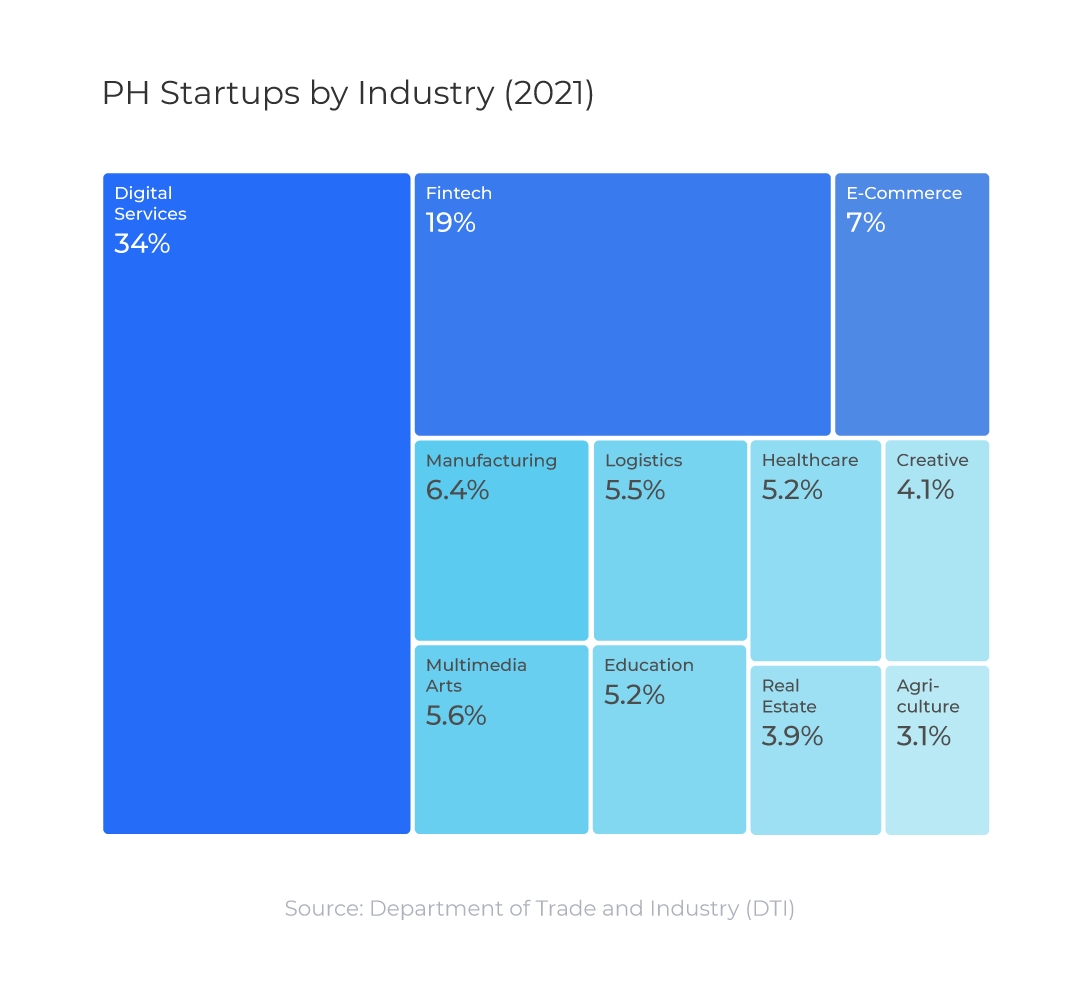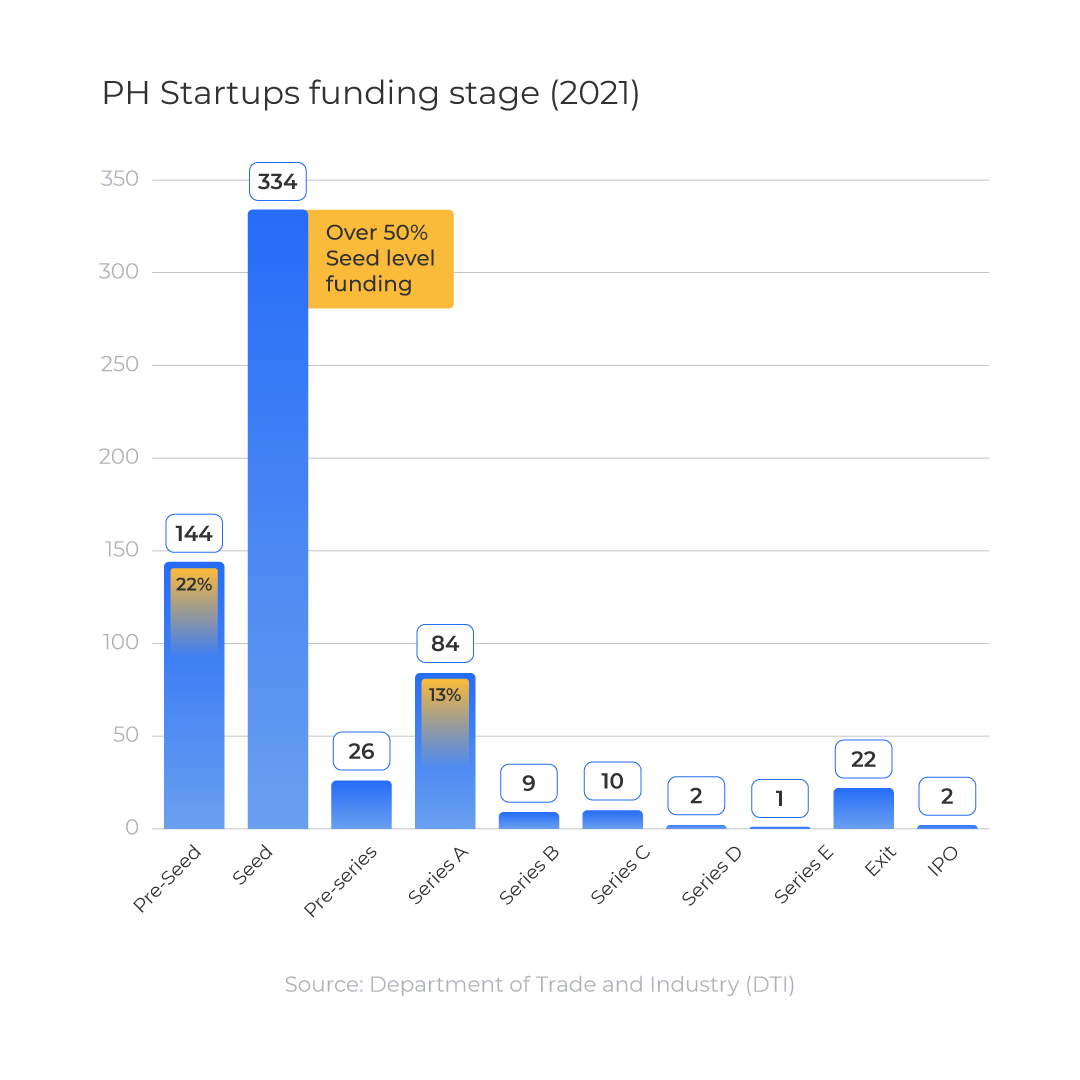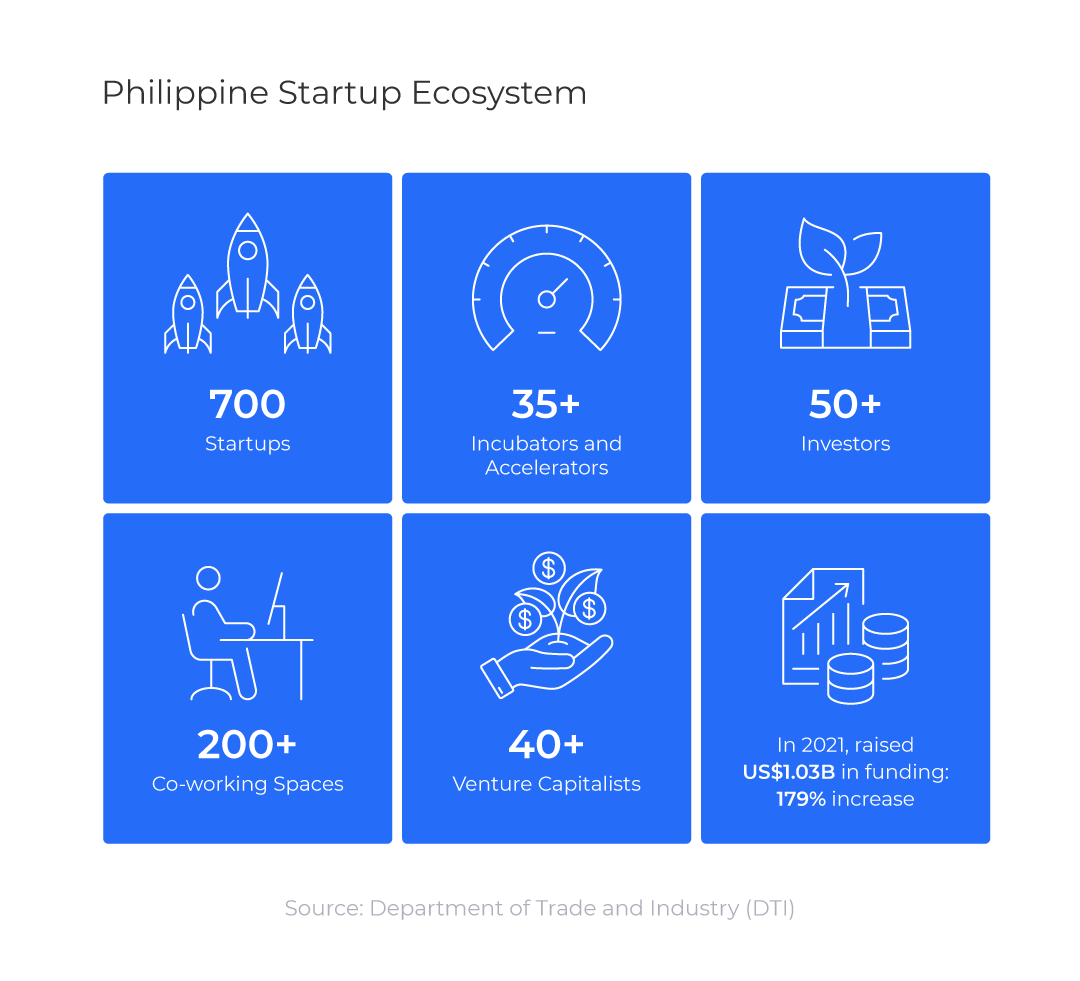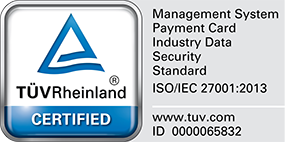The Philippines has become a fertile ground for startups in the region. In 2021, the local startup ecosystem has recorded a 179% increase in its funding, raising a total of $ 1.03 billion, or roughly P 53 million.
With a median age of 25.7, the young population allows for quicker adoption of various tech solutions for the country’s growing demands. The high adoption rate along with an enabling regulatory environment help startups in the Philippines scale their operations.
With this, supporting startups in the Philippines has become a focal point for the government and local industry players.
Startup 101
The Philippines’ Department of Trade and Industry (DTI) defines a startup as a business that “introduces innovative products and creates new business models that address changing societal and market needs.”
Coming from the longest lockdown in the world, the country has witnessed an unprecedented growth in its local startup industry. In fact, according to the venture capital firm the Gobi -Core Philippine Fund, the number of startups in the country has grown to 700 last year, almost double its 2019 figure of only 442. Of this number, 238 have set up head offices in the National Capital Region, the country’s premiere metropolitan area.
Digital transformation efforts have spurred the rise of startups. Many of these have aimed to facilitate the digitalisation of various industries while addressing the pain points of customers as they operate during and beyond the pandemic situation.
The startups in the Philippines
Philippine startups are grounded on the government’s Inclusive Innovation Industrial Strategy. This means that these startups are innovation-centered and science and technology-driven. Most of these startups serve the business-to-business (B2B) markets. In fact some of them have been listed in Forbes Asia 100 To Watch list. These startups come from e-commerce and retail, food and hospitality, education and recruitment, and finance.
In line with the local central bank Bangko Sentral ng Pilipinas’ (BSP) twin goals of digital transformation and financial inclusion, a bulk of these startups solve for the country’s increasing demand for digitisation of payments, and related business operations. This can include areas from billing, invoicing, and collecting payments. All these help bring products closer to customers and reduce the friction in the process.
Chances are, your business may be interacting with a local startup one way or another. According to DTI, roughly a third or 34% of the local startups operate in the digital services space. The second biggest industry share is for fintech, which is at 19%. Other startups in the country include e-commerce (7%), manufacturing (6.4%), logistics (5.5%), healthcare (5.2%), creative (4.1%), multimedia arts (5.6%), education (5.2%), real estate (3.9%), and agriculture (3.1%).
Startups changing the business landscape in the Philippines
Startups have been driving business innovations in the Philippines. These startups have been helping the country adapt to the continued challenges of the pandemic disruption by aiding economic recovery and promoting inclusivity and sustainable growth. What were previously unimaginable or hardly possible for regular businesses and their rigid structures, have become possible for startups that are capable of introducing innovative solutions quickly and efficiently.
More and more local governments have become engaged with local startups in solving uniquely Filipino problems brought about by the pandemic. Aside from contact tracing apps, cashless distribution of financial aid, and online education, local startups have also provided means to connect local producers to businesses and consumers. This has been crucial in a country of more than 7,000 islands and limited connectivity.
Because of all this, startups in the country have been receiving immense support from various industries. As of 2021, over 50% of startups in the Philippines have received Seed level funding. This means that around 334 local startups have already received the initial funding that will enable them to scale their operations.
Philippine Government enabling local startups
With over 35 incubators and accelerators, more than 50 investors, more than 200 co-working spaces, and over 40 venture capitalists supporting the country’s startups, the Philippines continues to foster a dynamic startup ecosystem. The government has established major pillars to the ecosystem, focusing on what they call industry 4.0 or smart manufacturing and new technologies. This includes AI, Internet of Things (IoT) and 5G. This also includes integrating production systems with innovative startups, upskilling and reskilling the workforce for the digital economy.
The government is also keen on promoting research for new products, services, and business models, and their commercialisation. Currently, 8 regional inclusive innovation centers have been established across all provinces in the country. These innovation centers will link stakeholders and startup players. connecting them with big businesses, coworking spaces, accelerators, incubators, research and development labs, universities, and funders.
All this is also made possible with the government’s promotion of ease of doing business in the country.
Part of that is enacting policy reforms to provide an enabling environment for startups. Some of the key legislations are the following:
- Ease of Doing Business Act. Streamlines the current systems and procedures of government services.
- Philippine Innovation Act. Generates and scales up action on all education, training, research, and development initiatives.
- Innovation Startup Act. Provides benefits and reduces constraints to encourage the establishment and operation of innovative new enterprises and businesses.
Xendit Philippines supporting Filipino startups
As part of the Filipino startup community, Xendit empowers local startups by providing quick and easy payments solutions. These payment solutions are highly adaptable to the Filipinos’ digital and over-the-counter payment needs. This way, local startups are able to scale their businesses more efficiently. Startup owners can focus on the growth aspect as Xendit takes care of automating the payment processes and website integrations.
Since its launch in the Philippines in 2020, Xendit has become a key player in the creation of a sustainable digital payments infrastructure in the country. Through its accelerator program, Xendit has helped various startups by equipping them with the tools and skills necessary in scaling their business in the Philippines.
The industry leader is set to contribute more in accelerating the digital economy in the Philippines with a fresh capital of $ 300 million from its recently concluded Series D funding round.
The Series D funding is co-led by Coatue and Insight Partners with additional investment from Accel, Tiger Global, Kleiner Perkins, EV Growth, Amasia, Intudo, and Justin Kan’s Goat Capital. This will be crucial in helping Xendit achieve its next goals for Philippine startups.
“We’ve invested in Philippine startups on the ground. We want to continue to do so by putting our capital directly into other Philippine startups in the fintech scene and in other verticals as well so that we can make this digital economy grow faster,” said Yang Yang Zhang, CEO & Managing Director of Xendit Philippines.
Xendit aims to aid in the capacity building of more Filipino startups by connecting global investors to promising Filipino startups, increasing funding raised by new Philippine startups, and guiding Filipino entrepreneurs in building scalable digital businesses.
Xendit also champions the government’s digital transformation initiatives and provides guidance in new tech innovations.
The future of startups in the Philippines
The country’s digital economy is on the verge of hypergrowth. With favorable regulatory conditions supporting innovation, the future of startups in the Philippines is looking bright. There is a whole of society and a whole of government approach being implemented regarding this.
Major infrastructures are being built and strengthened in order to allow tech businesses to flourish. Regulatory entities are working to implement a vision of the country’s digital ecosystem. This covers fintech, health, private finance, retail, and e-commerce, among others. For its part, the BSP is open to collaborating with industry players in establishing a regulatory sandbox to encourage innovation.
With its local expertise, Xendit continues to empower Filipino startups by offering disruptive digital payment solutions, creating inclusive products and services suited to the Filipino market, and leading the industry discussions in the Philippine fintech space.
The vibrant startup ecosystem in the Philippines is poised to continue growing with strong support from the community.











